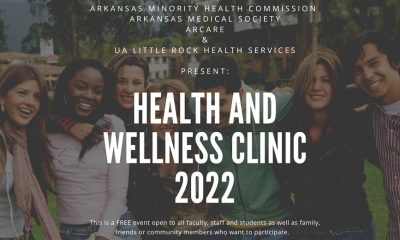Covid-19
Public Health Emergency might end in January next year and the Arkansas Department of Human Services is taking steps to prepare for such scenario
Little Rock, Arkansas – Nearly three years into the Covid-19 pandemic, the majority of Americans now have immunity against the virus, either developed after recovering from an infection or gathered through vaccination. People are still highly advised to use some specific pandemic measures in certain situations, but our lives now look similar to the pre-pandemic period.
Since the pandemic began, there have been a total of 97,491,522 Covid-19 cases in United States and 1,068,496 Covid-19 deaths. There have been a total of nearly 50,000 new cases on November 4, while the 14-day daily average is 40,163 cases. What is most important is the fact that the number of deaths declines, which is another proof that both vaccines and natural immunity work in preventing the development of severe conditions and deaths.
To better handle the pandemic, the federal government declared a public health emergency nationwide in January 2020. This measure is still in place, but according to multiple sources lately, the federal government unofficially plans to end the Public Health Emergency as soon as January next year. While state health departments wait for an official decision, some of them are already taking steps to get better prepared for such a scenario.
The secretary of the Arkansas Department of Human Services, Mark White, on Friday explained that the Arkansas Department of Human Services is preparing for the Public Health Emergency end in January. Speaking with the media Friday morning, White explained how it would affect those on Medicaid.
“The United States remains in a COVID-19 Public Health Emergency declared by the Federal Government,” said White. “One of the consequences of the public health emergency is that when a client signs up for Medicaid, even if they later become ineligible, we must leave them enrolled in Medicaid.”
White said that there are two things that might happen: the federal government might decide to continue the Public Health Emergency or to simply let it expire. If the federal government doesn’t intend to continue the Public Health Emergency, they should notify the state health departments at least 60 days prior to the Public Health Emergency’s end date. That means that states will have to remove ineligible Medicaid clients from the program before the Public Health Emergency officially ends.
Arkansas Department of Human Services officials are not certain if such an announcement will come in the upcoming period, but the health department wants to make sure that ineligible Medicaid clients will continue to get medical help even after the Public Health Emergency ends.
-

 Covid-191 year ago
Covid-191 year agoIngesting an excessive amount of vitamin D may result in serious health consequences
-

 Arkansas1 year ago
Arkansas1 year agoHuman remains discovered near a popular Arkansas hiking trail believed to be person missing since 2021
-

 Arkansas1 year ago
Arkansas1 year agoDriver in fatal single-vehicle accident in White County identified by authorities
-

 Local News1 year ago
Local News1 year agoA Sylvan Hills High School student’s painting receives considerable acclaim
-

 Arkansas3 years ago
Arkansas3 years agoArkansas Trying to Close Out Regular Season With Series Win Over Florida
-

 Arkansas3 years ago
Arkansas3 years agoMickelson changes his mind, accepts exemption to US Open
-

 Arkansas2 years ago
Arkansas2 years agoDue to the COVID Pandemic, Arkansas’ math and reading test scores have decreased
-

 Covid-191 year ago
Covid-191 year agoHealth and Wellness Clinic will be held on November 3 at UA Little Rock





Leave a Reply